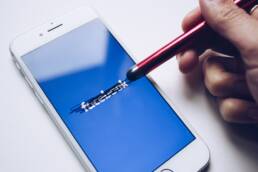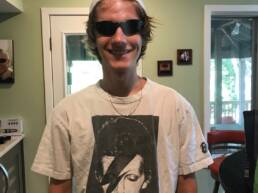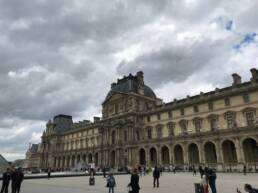By Julie Cohen, PCC
I have a confession to make. I spend time on Facebook…a lot of time. I like seeing what’s happening with my friends and their kids, participating in community groups and reading articles on topics that interest me and expand my knowledge. And who doesn’t love an occasional talking dog video? I also have a business page where I regularly post content and interact with my professional network.
The problem is the incessant pull to see what’s new, the quick check that turns into 30 minutes and the energy drain of switching gears and getting back to work or out of the office.
There is some irony in my love/hate relationship with Facebook, as I make my living coaching organizations and individuals about work-life balance.
This past summer, I enjoyed seeing my Friends’ vacation posts and photos from across the globe, and assumed I’d be sharing my own trip to San Francisco via social media. Instead, I decided to take a two-week break from Facebook during our travels so I could fully engage in my time away with my husband and son.
Here’s what I learned about Facebook:
- It’s addicting. The first few hours were the most difficult. I wanted to see what was happening and post an update or photo of where we were. I actually removed the app from my phone so I wouldn’t be continually tempted, and even a few days into our vacation, I felt like I might be missing something.
- It’s distracting. Facebook had become an unconscious habit and in those first few days I found myself regularly going to my phone to check-in. I was stunned by how often I physically picked up my phone without even thinking about it, pulling me away from my real experiences.
- It’s draining. Once I got through the first few days, the need to be connected with my thousand plus Friends diminished, and then it disappeared. At the same time, my energy increased and I began to sleep better.
- It’s dulling. The drain and distraction impacts my focus and creativity. Without Facebook, my thinking became more clear and ideas flowed for creative projects to consider when I returned to work. I felt mentally sharper and that sharpness remained when I returned home.
Some would question whether the changes were simply due to a change of venue and vacation mode. I think it was more than that. Upon returning to work, I stayed on Facebook vacation for several days. Despite the hectic pace that always occurs after a vacation, the benefits remained.
Here is how you can apply what I learned to your work-life balance situation:
- Pay attention to time and energy drains. They pull you away from your priorities – both professional and personal – and the gains may not be worth it. Besides Facebook, what habits sap your energy and pull you away from what is important? Notice them and then choose to lessen or eliminate them.
- Don’t confuse autopilot with self-care and relaxation. Self-care is anything that refreshes and energizes you – fuel that gets you through the day. Many use Facebook as a break, but often it turns into a mindless act that provides little or no engagement, boost or rejuvenating pause. Replace autopilot activities with those that give you energy, meaning, impact or real rest.
- Everything takes longer than you think it will. A two-minute peek at Facebook is rarely only two minutes. If, like most professionals and parents, time is your most valuable commodity, you need to be both planful and protective of it.
So, am I back on Facebook post-vacation? Yes, but I’m taking more fasts, not allowing it to interrupt important work and carefully paying attention to the actual time I use with the intention of further decreases in Facebook time and increases in real time.
Related Posts
July 7, 2020
18 Wishes for You – Because You Are My Child
April 23, 2018



